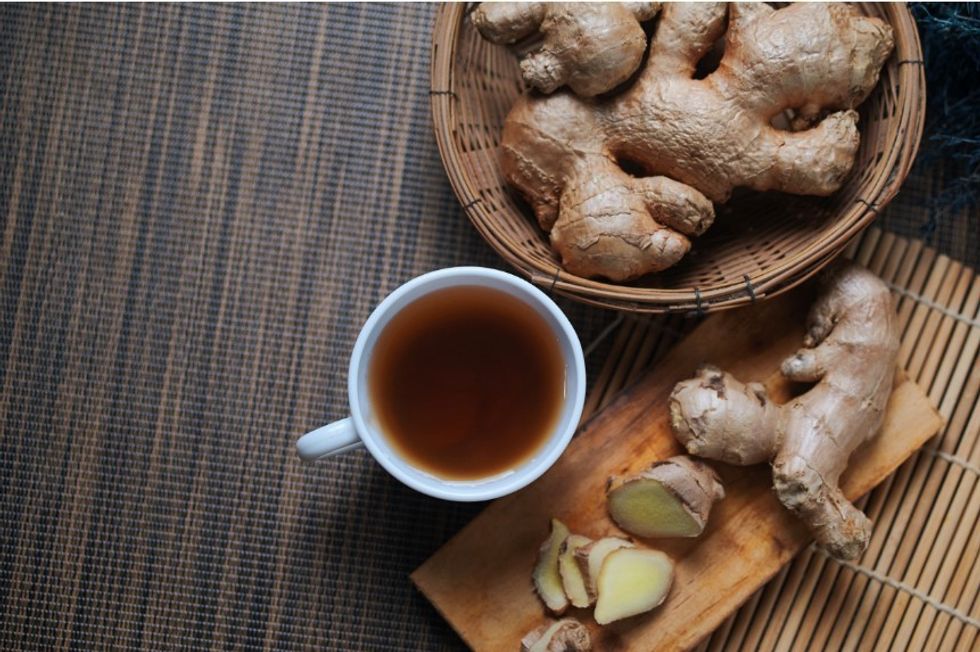Daily 16p spice found to significantly reduce bad cholesterol and blood sugar levels within weeks

The plant's proven cardiovascular benefits could provide a crucial natural treatment alternative
Don't Miss
Most Read
New research has revealed that ginger's bioactive compounds possess significant potential as a natural treatment for cardiovascular disease.
The study, published in Cureus, demonstrates that ginger can reduce inflammation, lower blood pressure, improve cholesterol levels, and prevent blood clots through its rich array of therapeutic compounds.
More than 400 bioactive compounds have been identified in ginger, with therapeutic value primarily dependent on gingerols, shogaols, curcumin, paradols, and terpenoids.
The most abundant component, 6-gingerol, has proven particularly effective in cardiovascular protection.

More than 400 bioactive compounds have been identified in ginger
|GETTY
Ginger's phenolic compounds may reduce high blood pressure by a similar mechanism to calcium channel blockers, common antihypertensive medications.
The herb's anti-inflammatory effects work by preventing the production of inflammatory cytokines, nitric oxide, and prostaglandin synthase in a dose-dependent manner.
Human studies confirm that consuming 2g of ginger for 12 weeks reduced inflammation, insulin resistance, fasting blood glucose, and triglycerides.
The research demonstrates ginger's ability to "significantly" improve cholesterol profiles by decreasing total cholesterol, low-density lipoprotein, and triglycerides whilst increasing high-density lipoprotein levels.
Daily consumption of less than two grams of ginger powder proves most effective in lowering triglycerides and cholesterol.
With a 100g pack of organic ginger root costing around £8 in the UK, that would set shoppers back roughly £0.16.
What's more, ginger's antiplatelet properties offer crucial blood clot prevention benefits.
The compound zingerone inhibits platelet aggregation and reduces activated thromboplastin time, whilst 6-gingerol and 6-shogaol demonstrate the strongest function against cholesterol and platelet aggregation.
Studies confirm that ginger administration of up to 4g daily has not affected platelet aggregation.
Clinical trials suggest that due to ginger's biological functions and cardioprotective properties, it may serve as a safer therapeutic approach when used alongside conventional cardiovascular medications, offering fewer adverse effects than traditional treatments.
LATEST DEVELOPMENTS

The global impact of cardiovascular disease deaths is staggering
|GETTY
The global impact of cardiovascular disease deaths is staggering, with approximately 80 per cent attributed to heart attacks.
By 2030, this number is expected to exceed 22.2 million people, with 7.4 million deaths due to coronary heart issues and 6.7 million due to stroke.
Women aged between 25 and 59 years face particularly higher mortality rates from cardiovascular problems, coronary and aortic diseases, and heart failure.
Common risk factors include diabetes, hypertension, unhealthy diet, hyperlipidemia, inflammation, and smoking.
Given these alarming projections, ginger's proven cardiovascular benefits could provide a crucial natural treatment alternative.
The herb's extensive anti-inflammatory, immunomodulatory, and antioxidative properties have been observed across various health conditions, positioning it as a promising complementary therapy for addressing the growing cardiovascular disease crisis.











